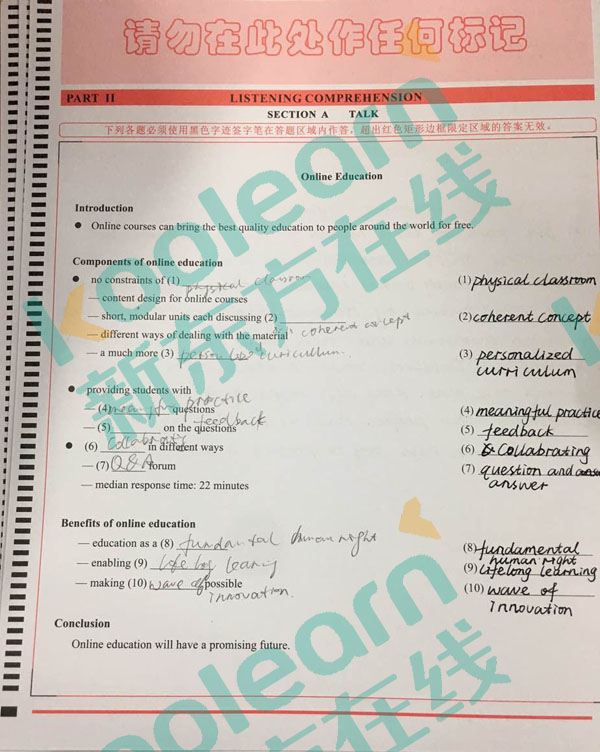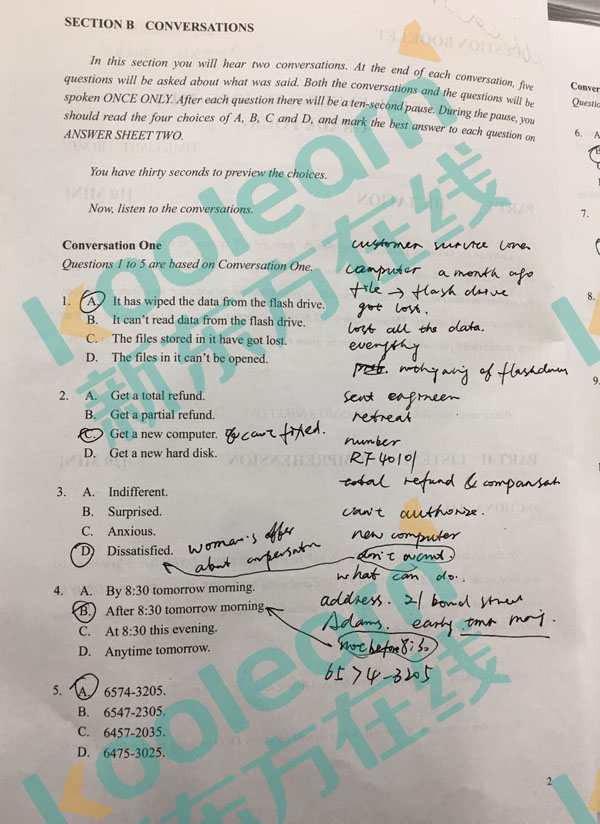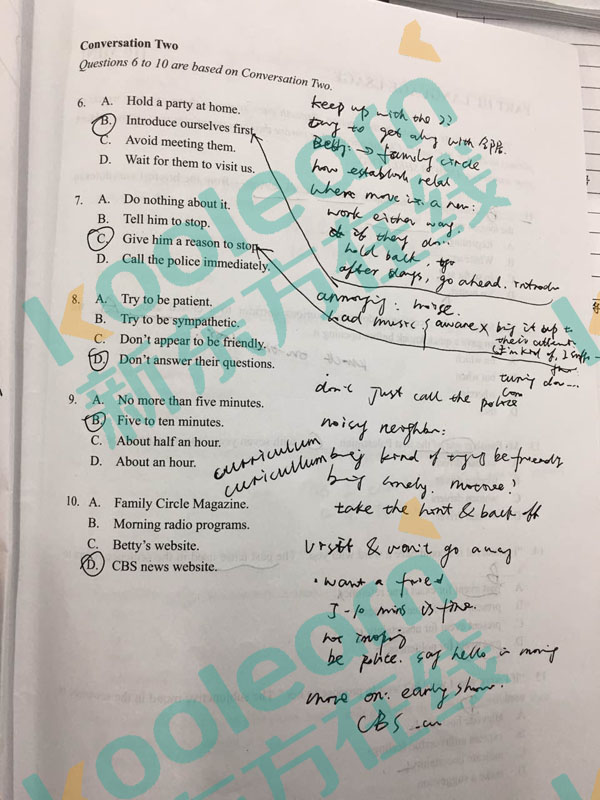- 听力试题
- 听力原文
- 听力答案



PartⅠ DICTATION
Learning Sympathy
A big part of being human is feeling sympathy, / but how early on in our lives do we learn this? / Scientists find that babies respond to other people / by crying when other babies cry. / However, babies can’t distinguish between themselves and others / until they’re eighteen to twenty months old. / Toddlers start to show concern for others around this time. / Kids also begin to do things like comforting other people. / And by the time they’re three, / most children will try to protect a victim in a fight.
PartⅡ LISTENING COMPREHENSION
SECTION A TALK
1. aphysical classroom
2. acoherent concept
3. personalizedcurriculum
4. (more) meaningful practice
5. feedback
6. collaborative learning
7. questionand answer
8. fundamental human right
9. lifelonglearning
10. innovation
SECTION B CONVERSATIONS
1. What’s wrong with the man’s computer?
答案:A. It has wiped the data from the flash drive.
2. How will the man be compensated if the computer can’t be fixed?
答案:C. Get a new computer.
3. How did the man feel about the woman’s offer of compensation?
答案:D. Dissatisfied.
4. When will the service engineer come to fix the computer?
答案:B. After 8:30 tomorrow morning.
5. What is the man’s phone number?
答案:A. 6574-3205.
6. What should we do if our neighbors didn’t reach out?
答案:B.Introduce ourselves first.
7. Which is the best way to handle a noisy neighbor?
答案:C.Give him a reason to stop.
8. What should we do if we have a nosy neighbor?
答案:D.Don’t answer their questions.
9. How long do we expect our neighbors tostay?
答案:B. Five to ten minutes.
10. Where can we get more information on this topic?
答案:D. CBS news website.